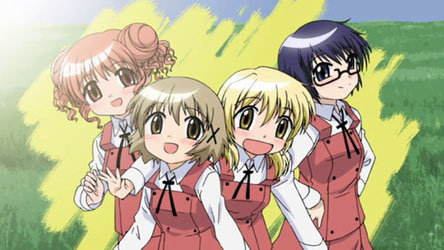
After taking a week off from writing, I realized how hard it is to rank composers for the next category. In fact, I believe it is the hardest of them all. My analysis on these musicians requires lots of research and evaluation. Nonetheless, I managed to get it done. During this process, I did find something interesting…
In my very first post, you have seen this quote…
‘As for myself, I have numerous amounts of BGM in my iPod shuffle and MD player. I like to add variety in order to prevent hearing the same vocals over and over until I want to rip my ears off’
This is why I have not chosen Fujisawa Mamoru a.k.a. Joe Hisaishi as part of my top 20. Before you put me in the electric chair, let me explain.
No matter how skilled the performer may be, it will not mean much to anyone if it doesn’t create a personal connection. Having a bond between you and the BGM (or just any music in general) is important. For example, when I listen to a piece or a song, I ask myself one simple question…
This does not mean I am degrading other composers just because they may have not met my standards. I know all composers put their heart and soul into their work. I could never take that away from them. Ever. I put personal correlation as a higher priority than a catchy tune. Memorable beats are nice in the short term. Nevertheless, I’m a guy who focuses on the long run more.
Joe Hisaishi is not part of my top 20. For the record, I think he is an excellent composer. However, I feel that his work does not provide anything special for me as an individual. His music works very well with the Ghibli movies but I don’t hear anything that stands out or shows me anything beyond what it represents. There is something about the Ghibli movies that does not give me the urge to re-watch once it’s done but that’s an entirely different issue. In the end, I fail to see anything in his music on the Ghibli films that can recommend me to put it in my iPod shuffle or MD player.
There are people who would say…
Even so, I still stand by what I said.
Why? It is so obvious. I am a university student which means I was not old enough to watch any of Hisaishi’s work in the 1980s. In the 1980s, he worked on 8 anime TV series that had at least a minimum of 20 episodes each. Ever since the 80s died, he has never worked on a TV anime series again. I have tried to find any copies or ways to watch an episode from one of the 8 TV series. Unfortunately, finding them is less likely to occur than a snowball surviving in hell. No, I am not going to use Youtube because the quality is terrible. Therefore, I am forced to go with what I have. At least I can say variety does exist in him.
Then, there are fans who would counter with…
I refuse to do so because BGM provide emotion to scenery. BGM always go along side with something whether it’s a happy scene or a tragic moment. In short, it is not the main course of a feast. It is an irreplaceable side-dish. New implications to the BGM are formed AFTER you know its true meaning. Once it is acknowledged, you pay homage to it with your own definition. It ties to the personal connection that I mentioned earlier. Let me remind you that we are focusing on anime or anime-related only. Orchestral pieces (i.e. Mozart, Chopin, Brahms etc.) or anything non-anime related are irrelevant in this issue.
Without further delay, here are the bench players.
 |
Asakura Noriyuki (Rurouni Kenshin, MAJOR)
He built himself a nice little rut. I don’t know why he keeps a low profile of himself by working on only 4 animes in total despite how he has been involved in the industry for more than a decade. It may be because he is busy managing his own music studio. Anyway, this composer’s greatest strength is transition. I don’t know how he does it, but he has this awesome technique to change the mood in an instant. From happy to sad or vice versa, he can do it within one composition. One of my favorite BGM from Rurouni Kenshin is titled ‘Days to Remember’. It starts off melancholy and ends the piece by providing a glimmer of hope. Asakura is usually known for throwing jazz and rock in his music, but I think his conversion method proved to be more valuable. Masuda Toshio, whom I mention in my previous post, can actually learn a thing or two from him. |
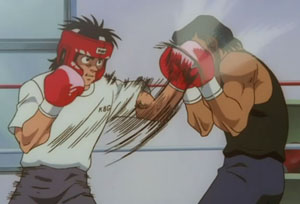 |
Imahori Tsuneo (Cowboy Bebop [guitar], Hajime no Ippo, Gungrave, Trigun, Wolf’s rain [guitar])
Imahori is a guitarist first and a composer second. Motivation, counter (as in counterattack) and the blues are the themes he uses. I love how he puts full use to the instrument that he cherishes. At this point, he has established what kind of style is applied to his pieces. Don’t expect variety from this man because he will continue to do what he thinks seems fit. Keep shredding your guitar, Imahori, because I highly doubt anyone will get tired of you soon. |
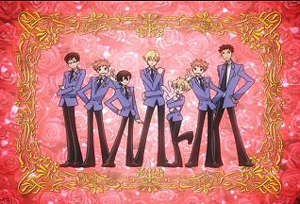 |
Hirano Yoshihisa (Sensei no Ojikan, Ouran Koukou Host Club, Midori no hibi, Strawberry Panic)
Despite how much people like Death Note, that franchise will not be included as part of Hirano’s contribution in this appraisal. Although my hate for the anime and manga is at its fullest extent, it does not justify why it is being excluded. The main reason why it is being banned is because the majority of the Death Note BGMs were composed by Taniuchi Hideki. This is why I detest assessing works that involves multiple composers on the same anime. It is not in equal terms. Hirano participated only 1/10 of the project. Greater part of the animes he has worked on is concentrated towards a high school environment. Hirano has managed to convey atmospheres differently. For example, he made a tone that is sophisticated yet upbeat in Ouran Koukou Host Club. I believe he is determined to make a name out of himself in the future. For now, this is where he stands. (Note: I do not hate Death Note because L died. I hate it because of HOW L died. Let’s face it. The Near/Melo arc is not the legitimate successor to the previous battle between L and Kira.) |
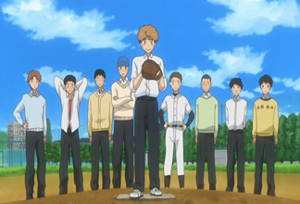 |
Hamaguchi Shiroh (Ah! My Goddess TV, Ookiku Furikabutte, Kiddy Grade)
Every time I listen to his music, I sense inner peace. The melody is laid back but not completely. The odd thing about his composition is that it works for everybody. Hamaguchi’s tracks are one of a kind because it establishes a direct bond between you and your life. The term, normal life, comes to mind when you take note of his BGM. He has a process of making a pitch simple with the absence of repetition. |
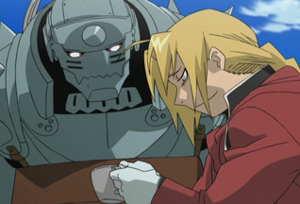 |
Oshima Michiru (Fullmetal Alchemist, Le Chevalier D’Eon, Hana Yori Dango, Lord of Lords Ryu Knight)
It is ironic when I found out that Oshima worked with Sahashi Toshihiko in Lord of the Lords Ryu Knight. Why? It’s because they have the same style. Similar to Sahashi, she shows her compassion for the orchestra in Fullmetal Alchemist. However… If she never worked on FMA, would she be well-known as she is now? I ponder upon that question and decided to research more about her. Recognition for Oshima was seriously overdue when my study concluded that she has been in the industry for approximately 20 years (and still counting). The popularity of the anime may have been a factor. Out of 19 animes she worked in the span of those 20 years, Fullmetal Alchemist was by far the most popular anime. This proves that she is working within her own tempo. I do not believe she does it for the glory or the popularity. I think she truly dedicates her work for the fans no matter how big or small the base may be. |
During my absence, I notice how testy the RC community has been with a certain post that has taken place within the last couple of weeks. I want to be clear about something before I close.
Referring to the Joe Hisaishi argument or any other argument at that matter, people may think I am selfish or even ignorant. In the end, I could not give a damn because I made my point by using all of my resources, information highway and experience. Furthermore, I have never disproved of Hisaishi’s work nor will I ever. I understand there are people who will disagree with my view in various topics. That is fine. If you think what I said is wrong, back it up. Don’t give me a simple stereotypical statement made by some ill-mannered jackass who has an IQ as low as Michael Vick. That’s right, I said it.
I write the columns in this blog because of what I learned from Comic Party with this quote I tweaked with my own ideals…
“As long as there is one reasonable person who shares your view, you should never give up no matter what others may think or say.”
Coming down the home stretch, One-Hit wonders will be next. 😛

1st!!
No Kajiura Yuki? 🙁
Where’s Yoko Kanno?
no worries – click the “unsung heroes” link on the right side menu or the link right under the title above for kyouya’s previous articles – which contain both kanno and kajiura.
cuz you know, “part 3” assumes that there was a part 1 and part 2 before it -_-
I won’t mind to see Asakura Noriyuki to be the most underappreciated BGM talent IMO, even if he did fewer works.
The Major soundtrack is incredible IMO.
Imahori Tsuneo is a nice mention too. I think his unique BGM styles are simply outstanding in the most literal sense since they stand out from the rest stylistically.
@jaalin: “cuz you know, ‘part 3’ assumes that there was a part 1 and part 2 before it -_-”
LOL n00bs
Re: Oshima Michiru:
“Out of 19 animes she worked in the span of those 20 years…”
Holy crap! I knew she had done some game music, but as for anime, I thought she had only done FMA, making her a lock for One-Hit Wonder. Ah, well, I haven’t seen or heard any of those other anime, so I guess she’s still “one-hit” to me. ^_^ That that “one” is one of the best anime soundtracks of all time certainly buys her a spot on one of these lists…
And speaking of game composers, I read (and agreed with) your response to Uematsu Nobuo being missing from your list in the previous article. Even though he has worked on more anime than just Advent Children (if you even consider that an anime), his work on the Final Fantasy game series has been of such a high caliber that he doesn’t belong anywhere other than in an “All Stars” class on any composer list. Problem is, he just hasn’t had enough anime experience to qualify.
I just find it ironic that one of the composers you mention here, Hamaguchi Shiroh, collaborated with Uematsu on arguably one of Shiroh’s more high-profile projects, that being the Ah! My Goddess Movie.
wow great job on this post…
ive been anticipating the 1 hit wonders list for a while now
make sure u get fujima hitoshi on there for his amazing sola ost ^^
Pretty reasonable list for the benchers, Le Chevalier D’Eon is probably my favourite of the lot, maybe Ookiku Furikabutte too.
By the way, wheres Hirasawa Susumu? I don’t think he’s a One-Hit wonder and is at least a bencher. What about Mark Mancina (Blood +)?
P.S. Ever thought of doing a Game OST listing? Maybe a Pinch-Hitter category as well for the anime OSTs for composers whose OSTs are good enough to salvage disastrous anime series.
lol at hisaishi. and asakura btw.
you are awesome!! *w*
“(3:41:27) [Generalsmoker] yo lordcanti my man, i’m sorry, listen, there is some guy crazily asking me to ask you to move him up on your server’s queues, his nick is kyouya and he says he needs trigun osts otherwise he is going to die. i don’t know why he wants me do to that, he thinks we are in some kind of hierarchy in here, maybe he thinks you are obliged to obey to my instructions or something, but that is not the case, lol.”
Miasmacloud
The reason why I asked is because I lost my copy of Trigun OSTs. I thought I had it in my backup storage but apparently I forgot to recover it in a HDD Crash few years back.
How nice of you to post that…lol.
Hmm… I get what you mean about BGM belonging specifically to whatever scene it was composed for, because I know a lot of BGM I have would not nearly mean as much to listen to for me if I hadn’t heard it in context first. But in fact, I have before listened to BGM for something before seeing the anime it belonged to, and it was good enough to convince me to see the anime as well. Or I do have pieces on my playlists from animes I’ve never seen or even heard of, and I adore them. There are exceptions where the music is just that good.
Interestingly, I have very little Joe Hisaishi music. But the ones I do have are outstanding. I think it’s something like hit-and-miss: either his songs are not memorable, or are very memorable.
that explains a lot – why Yoshihisa Hirano made it to the bench players list. Well she did not do much for the Death Note OST, as you say, 1/10th of the project. But there is one song in particular that I like – “Air” from Death Note OST II.
Anyway my personal insight about Death Note. Being a fan of Death Note, I’d say I better give some defensive comments here. Usually people who follow up the manga and anime are too attached with the character (especially L) and once L was killed off from the story, people start to shift away from Death Note. Kyouya, in your defense, I believe the way L died is not reasonable – it was way too easy for Light. But Light did have it all planned. So the way he died turned out exactly the way he had expected. Well it is all love and hate for Death Note. Also the director’s cut version is due to be released next month. So do keep a lookout for that… and the OST.
btw I like what Yoshihisa Hirano did for Ouran. Now I wonder who made it to the One-hit wonders list…
Kenji Kawai
wait… why was a Hidamari Sketch image posted? It doesn’t have anything to do with this article! [fell for the trap]
Savofenno,
you might want to check the part 1 of this post to see Kenji Kawai on the list.
Kyouya,i have written a comment for you in part 2,and i would really like to hear your answer to it.